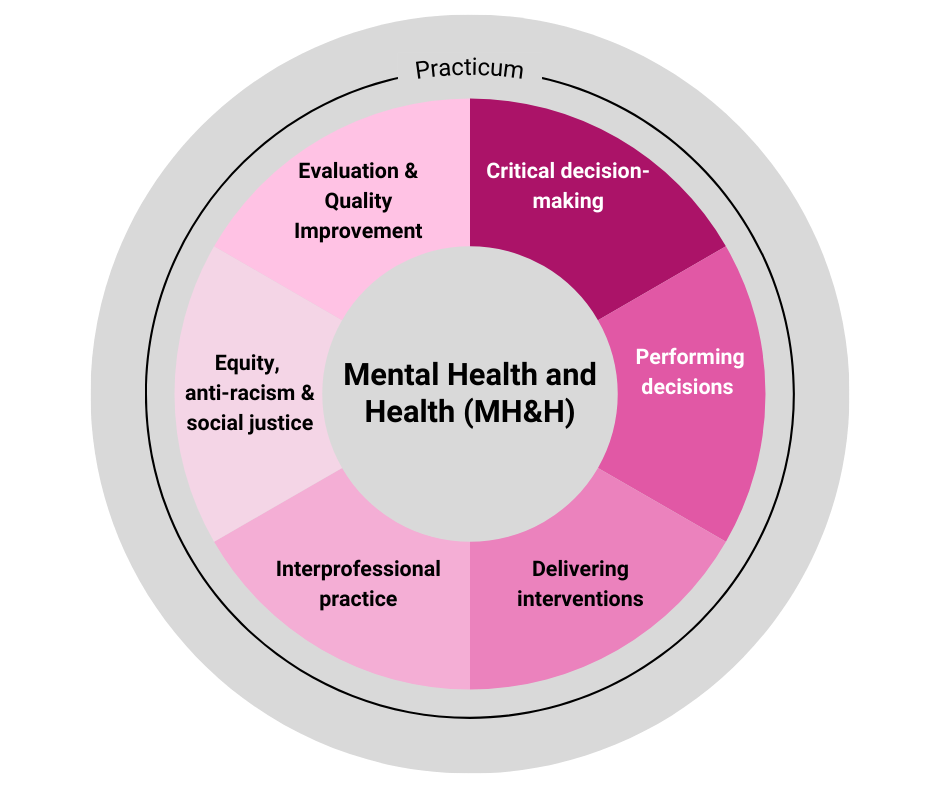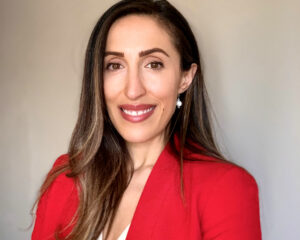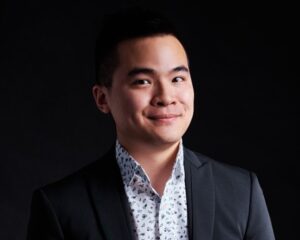Mental health and health
 Social workers have key roles to play in assisting individuals, families and communities to cope with physical and mental health concerns. As members of interprofessional health teams, they bring a social justice focus and holistic approach to the examination of the biopsychosocial-spiritual-cultural factors influencing physical and mental health.
Social workers have key roles to play in assisting individuals, families and communities to cope with physical and mental health concerns. As members of interprofessional health teams, they bring a social justice focus and holistic approach to the examination of the biopsychosocial-spiritual-cultural factors influencing physical and mental health.
Social workers understand the impact of oppression, racism and inequity on health and mental health and they are involved at the micro, mezzo and macro levels. With an emphasis on the social determinants of health and mental health, they strive to enhance wellbeing, empower clients, promote social change, and advocate for equity and access to services.
Coordinator
Core faculty
- Keith Adamson
- Samantha Anthony
- Rachelle Ashcroft
- David Brennan
- Shelley Craig
- Lin Fang
- Eunjung Lee
- Carmen Logie
- Faye Mishna
Mental health and health competencies
Learn about the competencies students will acquire in the Mental Health and Health field of study, and the skills, courses and assessment indicators or methods associated with each.
Required courses
Required courses for students who will begin their MSW program in Fall 2023:
- SWK 4511H Practice Based Research in Mental Health and Health
- SWK 4412H The Context of Mental Health and Health Practice
- SWK 4702Y Social Work Practicum II
- Two half-credit graduate level electives
- Related Selective Choices (select one of the following three):
-
- SWK 4622H Social Work Practice in Health and SWK 4604H Social Work Practice in Mental Health
- SWK 4622H Social Work Practice in Health and one of the following courses:
- SWK 4604H Social Work Practice in Mental Health and one of the following courses:
- SWK 4001H Emotion-Focused Therapy or
- SWK 4003H Narrative Therapy or
- SWK 4615H Cognitive Behavioural Theories and Clinical Social Work Practice or
- SWK 4631H Advanced Social Work Practice in Mental Health or
- SWK 4636H Special Topics in Mental Health Social Work: Eating Disorders Assessment and Treatment or
- SWK 4647H Family-Centred Practices in Addictions and Mental Health or
- SWK 4808 Special Topics in Mental Health: Social Work Practice with LGBTQIA Populations
Required courses for students who began the MSW program before Fall 2023 (*Students who started before Fall 2023 may request to opt into following the new requirements. Please visit again as the request form will be available here soon)
- SWK 4412H The Context of Mental Health and Health Practice
- SWK 4511H Practice Based Research in Mental Health and Health
- SWK 4702Y Social Work Practicum II
- Two half-credit graduate level electives
Related Selective Choices (select one of the following three)
- SWK 4622H Social Work Practice in Health and SWK 4604H Social Work Practice in Mental Health
- SWK 4622H Social Work Practice in Health followed by SWK 4632H Advanced Social Work Practice in Health
- SWK 4604H Social Work Practice in Mental Health followed by SWK 4631H Advanced Social Work Practice in Mental Health
MSW Program with Advanced Standing complete the above courses plus, the compulsory course:
SWK 4510H Research for Evidence-Based Social Work Practice. SWK 4510H must be completed before taking any of the research courses in this field of study. Students take this course in the first sessions of the MSW Program.
Practicum Examples
- Access Alliance Multicultural Health and Community Services
- Across Boundaries
- Black Creek Community Health Centre
- Bridgepoint Hospital
- Canadian Mental Health Association
- Centre for Addiction and Mental Health
- Family Health Teams/Primary Health Care Teams
- Family Service Toronto
- Holland Bloorview Kids Rehabilitation Hospital
- Jean Tweed Centre
- LOFT Community Services
- Michael Garron Hospital
- Mount Sinai Hospital
- North York General Hospital
- Ontario Shores Centre for Mental Health Sciences
- School boards (YRDSB, TDSB, TCDSB etc.)
- St. Joseph’s Health Centre
- The Salvation Army
- The Hospital for Sick Children
- Talk it Out Online Clinic (FIFSW)
- University of Toronto Accessibility Services
- University of Toronto Health & Wellness
- Woodgreen
*The above examples of practicums are offered most years but not every year, depending on supervisor availability
Career prospects
Variable depending on the economy and market conditions. Jobs are often in areas such as: mental health settings (including community), non-profit organizations, inpatient hospital and community health units. As with many social work jobs they usually start as contract positions.
What competencies can I expect to gain from this field of study?
Students in Mental Health and Health can expect to gain the knowledge necessary to perform as member of an inter-professional health team helping individuals and families adapt to and overcome challenges associated with mental and physical illness. Students will leave the program with understanding of the social and community context in which illnesses occur and are exacerbated, as well as an understanding of the policies that facilitate the creation of these social environments. This knowledge equips students with the critical thinking capacities to intervene at multiple levels (individual, family, group, community, policy) to support those with various needs and abilities.
FAQ’s:
When do I declare my field of study?
- Year 1 of 2-year MSW Program: Submit your form to the Registrar, normally at the beginning of February
- Advanced Standing MSW Program: Indicate field of study when applying for admission to the program
Who do I contact for advice on field of study selection?
Your faculty advisor. Advisors are assigned to students by the Associate Dean, Academic’s Office. Notification is by e-mail at the start of September. If you do not know who your advisor is, e-mail associate.deanfifsw@utoronto.ca
Can I take one of the selective courses I am not counting toward my core requirements as one of my electives?
As long as you have enough courses to complete the field of study requirements, you can take one of the “selective” options to count as an elective. For example, if you are focusing on Mental Health, you could choose to take SWK4604H and SWK4631H as your core courses and then enroll in SWK4622H (health) as an elective.
Can I take core courses offered in other fields of study to count as my electives?
Students have the option of taking a course from another field of study to count as an elective if there is room in the course after students in the field have enrolled. Please contact the Registrar Office at registrar.fifsw@utoronto.ca to see whether there is space in another course prior to the start of the term the course is offered. Typically, we will know if there is room in a course by the end of July for Fall Session courses and by the end of November for January Session courses.
What competencies can I expect to gain from this field of study?
Students in Mental Health and Health can expect to gain the knowledge necessary to perform as an inter-professional health team member in helping individuals and families adapt to and overcome challenges associated with mental and physical illness. Students will leave the program with understanding of the social and community context in which illnesses occur and are exacerbated, as well as an understanding of the policies that facilitate the creation of these social environments. This knowledge equips students with the critical thinking capacities to intervene at multiple levels (individual, family, group, community, policy) to support those with various needs and abilities.





